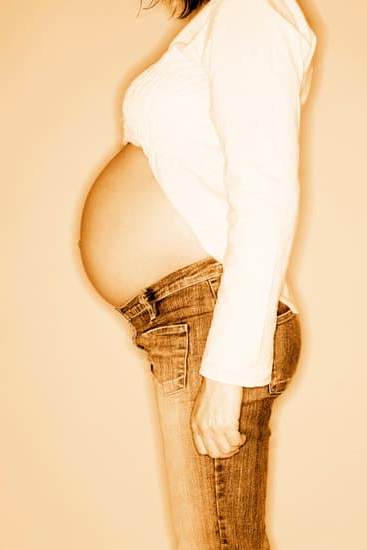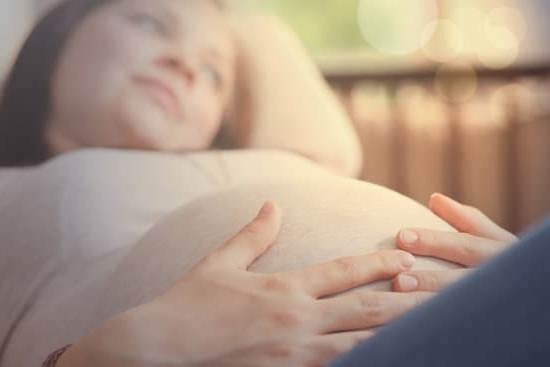Experiencing stomach cramps and diarrhea in early pregnancy can be unsettling for expectant mothers. These symptoms are often unexpected and can cause concern, but they are actually quite common. In this article, we will explore the causes of stomach cramps and diarrhea as early pregnancy symptoms, how to manage them, when to seek medical attention, as well as tips for alleviating these discomforts.
During the early stages of pregnancy, women may experience a variety of symptoms as their bodies adjust to the changes brought on by pregnancy. Stomach cramps and diarrhea are among the many symptoms that can occur. Understanding these symptoms and knowing how to address them is important for the overall well-being of both mother and baby.
It’s crucial to recognize the difference between normal pregnancy discomforts and potential complications. By understanding what causes stomach cramps and diarrhea in early pregnancy, expectant mothers can better navigate through this phase with ease. It’s also important to dispel common misconceptions surrounding these symptoms in order to alleviate any unnecessary anxiety or worry.
Recognizing Stomach Cramps and Diarrhea as Early Pregnancy Symptoms
Stomach cramps and diarrhea are not the most common symptoms associated with early pregnancy, but they can indeed be early indicators of a pregnancy. It’s important for women to recognize these symptoms, so they do not mistake them as signs of an illness or other condition.
During early pregnancy, many women may experience changes in their digestive system due to hormonal fluctuations. This can lead to stomach cramps and diarrhea as the body adjusts to the increased levels of hormones. These symptoms can occur as early as one week after conception, often before a woman even realizes she is pregnant.
The exact cause of stomach cramps and diarrhea in early pregnancy is not fully understood, but it is believed that hormonal changes play a significant role. The increase in hormones such as progesterone can slow down digestion and lead to gastrointestinal symptoms like stomach cramps and diarrhea. Additionally, other factors such as stress, diet changes, and underlying gastrointestinal issues can also contribute to these symptoms during early pregnancy.
| Causes | Details |
|---|---|
| Hormonal Changes | Increased levels of progesterone can slow down digestion |
| Stress | Emotional or physical stress can exacerbate gastrointestinal symptoms |
| Diet Changes | The body’s response to changes in food habits may result in stomach cramps and diarrhea |
Causes of Stomach Cramps and Diarrhea in Early Pregnancy
Stomach cramps and diarrhea are common symptoms experienced by some women during early pregnancy. These symptoms are often attributed to the hormonal changes that occur in the body during this time. The body produces higher levels of hormones such as progesterone, which can affect the digestive system and lead to gastrointestinal issues.
In addition to hormonal changes, other causes of stomach cramps and diarrhea in early pregnancy include dietary changes, sensitivity to certain foods, and stress. Many women experience food aversions or cravings during early pregnancy, which can lead to changes in their diet that may trigger stomach discomfort. Stress and anxiety can also contribute to digestive problems, as they can affect gut health and lead to symptoms like cramping and diarrhea.
Another potential cause of stomach cramps and diarrhea in early pregnancy is an increase in blood flow to the pelvic area. This increased blood flow can lead to changes in bowel movements and cause gastrointestinal issues for some women. It’s important for expectant mothers experiencing these symptoms to understand that they are not alone, as many women experience these discomforts during early pregnancy.
How to Manage Stomach Cramps and Diarrhea in Early Pregnancy
During the early stages of pregnancy, many women experience a range of symptoms as their bodies adjust to the changes taking place. Stomach cramps and diarrhea are common symptoms that can occur during this time. It’s important for expectant mothers to understand how to manage these discomforts in a way that is safe for both themselves and their developing baby.
Here are some tips for managing stomach cramps and diarrhea in early pregnancy:
1. Stay Hydrated: It’s essential to drink plenty of water to avoid dehydration, especially if you are experiencing diarrhea. Dehydration can be harmful during pregnancy, so be sure to drink water regularly throughout the day.
2. Eat Small, Frequent Meals: Instead of large meals that can exacerbate stomach cramps, try eating smaller meals more frequently throughout the day. This can help regulate your digestion and minimize discomfort.
3. Avoid Trigger Foods: Certain foods may trigger stomach cramps or worsen diarrhea. Spicy foods, fatty foods, and caffeine are known to irritate the digestive system, so it’s best to steer clear of these until your symptoms improve.
By following these management techniques, pregnant women can navigate stomach cramps and diarrhea with greater comfort and ease, allowing them to focus on the excitement of their impending motherhood rather than being bogged down by uncomfortable symptoms.
When to Seek Medical Attention for Stomach Cramps and Diarrhea in Early Pregnancy
Experiencing stomach cramps and diarrhea in early pregnancy can be concerning for many expectant mothers. While these symptoms can be normal as the body adjusts to the hormonal changes of pregnancy, there are times when they may signal a more serious issue. It’s important to know when to seek medical attention to ensure the health and safety of both mom and baby.
Here are some guidelines for when to seek medical attention for stomach cramps and diarrhea in early pregnancy:
1. Persistent Symptoms: If stomach cramps and diarrhea persist for more than a few days, it’s important to consult with a healthcare provider. This could indicate an underlying digestive issue that needs to be addressed.
2. Dehydration: Diarrhea can lead to dehydration, which is especially concerning during pregnancy. If you are unable to keep fluids down or notice signs of dehydration such as dry mouth, decreased urine output, or dizziness, seek medical attention immediately.
3. Fever: A fever along with stomach cramps and diarrhea could be a sign of infection or another illness that requires medical treatment. It’s crucial to monitor your temperature and contact your healthcare provider if you develop a fever.
Remember, it’s always better to err on the side of caution when it comes to the health of you and your baby. If you’re unsure whether your symptoms warrant medical attention, don’t hesitate to reach out to your doctor or midwife for guidance.
Tips for Alleviating Stomach Cramps and Diarrhea in Early Pregnancy
During the early stages of pregnancy, many women experience stomach cramps and diarrhea, which can be uncomfortable and concerning. However, there are several tips and strategies that can help alleviate these symptoms and provide some relief during this time.
Stay Hydrated
One of the most important things you can do to alleviate stomach cramps and diarrhea in early pregnancy is to stay hydrated. Dehydration can make these symptoms worse, so it’s essential to drink plenty of water throughout the day. In addition to water, you can also try drinking clear fluids such as broth or electrolyte drinks to replenish any lost fluids.
Modify Your Diet
Making changes to your diet can also help alleviate stomach cramps and diarrhea. Avoiding spicy, greasy, or heavy foods that can exacerbate these symptoms is essential. Instead, focus on consuming bland foods such as rice, bananas, toast, and applesauce (often referred to as the BRAT diet).
Relaxation Techniques
Stress and anxiety can often exacerbate stomach cramps and diarrhea during early pregnancy. Utilizing relaxation techniques such as deep breathing exercises, meditation, or prenatal yoga may help reduce these symptoms. Finding ways to relax and unwind can be beneficial for both your physical and mental well-being.
By following these tips for alleviating stomach cramps and diarrhea in early pregnancy, you may find some relief from these discomforting symptoms while supporting your overall health during this crucial time.
Common Misconceptions About Stomach Cramps and Diarrhea in Early Pregnancy
When it comes to early pregnancy symptoms, there are plenty of misconceptions surrounding stomach cramps and diarrhea. Many women may not realize that these symptoms can actually be indicators of pregnancy, leading to confusion and anxiety. It’s important to debunk these misconceptions in order to provide accurate information and support for expectant mothers.
Myth: Stomach Cramps and Diarrhea Cannot Be Early Pregnancy Symptoms
One common misconception is that stomach cramps and diarrhea are not typical signs of early pregnancy. In reality, hormonal changes and the body’s adjustment to a developing fetus can cause gastrointestinal issues such as cramping and diarrhea. It’s essential for women to be aware of this possibility, so they can differentiate between normal pregnancy symptoms and potential health concerns.
Myth: Stomach Cramps and Diarrhea Always Indicate a Problem
Another myth surrounding stomach cramps and diarrhea in early pregnancy is that they always signal a problem or complication. While it’s important to pay attention to these symptoms, especially if they are severe or persistent, it’s also common for many pregnant women to experience mild gastrointestinal discomfort as their bodies adapt to the pregnancy. Understanding the difference between normal discomfort and potential complications can help alleviate unnecessary worry.
Myth: Stomach Cramps and Diarrhea Are Not Treatable in Early Pregnancy
Some individuals believe that stomach cramps and diarrhea in early pregnancy cannot be managed or treated. In fact, there are various strategies for relieving these symptoms, such as staying hydrated, eating small meals, avoiding trigger foods, and getting plenty of rest.
Additionally, expectant mothers should consult with their healthcare providers to explore safe options for alleviating gastrointestinal discomfort during early pregnancy. By addressing this misconception, women can feel more empowered in managing their symptoms effectively while prioritizing their well-being during this sensitive time.
Conclusion
In conclusion, navigating stomach cramps and diarrhea in early pregnancy can be a challenging experience for many women. It is important to understand that these symptoms are not uncommon during the early stages of pregnancy and can often be managed with simple lifestyle changes and home remedies.
By recognizing the signs of stomach cramps and diarrhea as early pregnancy symptoms, women can take proactive measures to alleviate discomfort and ensure the health and well-being of both themselves and their growing baby.
It is crucial for expectant mothers to familiarize themselves with the various causes of stomach cramps and diarrhea in early pregnancy, which can include hormonal changes, dietary adjustments, or underlying medical conditions. By understanding the root cause of these symptoms, women can implement targeted strategies to manage their discomfort effectively. Additionally, knowing when to seek medical attention for stomach cramps and diarrhea in early pregnancy is essential for ensuring optimal healthcare support and addressing any potential complications that may arise.
Furthermore, there are several tips for alleviating stomach cramps and diarrhea in early pregnancy that women can incorporate into their daily routine. This may include staying hydrated, consuming small and frequent meals, practicing gentle exercises like prenatal yoga, getting an adequate amount of rest, and seeking emotional support from loved ones.
Additionally, addressing common misconceptions about stomach cramps and diarrhea in early pregnancy can help to dispel unnecessary fears or anxieties surrounding these symptoms, allowing women to approach their pregnancy journey with greater confidence and peace of mind.
Frequently Asked Questions
Is Stomach Cramps and Diarrhea Normal in Early Pregnancy?
Stomach cramps and diarrhea can be normal in early pregnancy for some women. These symptoms can be caused by hormonal changes, food sensitivities, or digestion issues. However, it’s always best to check with a healthcare provider to rule out any concerns.
What Are the GI Symptoms of Early Pregnancy?
The gastrointestinal (GI) symptoms of early pregnancy can include nausea and vomiting, constipation, bloating, and changes in appetite. These symptoms are often due to hormonal fluctuations and the physical changes that occur in the body during pregnancy.
When Should I Worry About Abdominal Pain During Pregnancy?
Abdominal pain during pregnancy should be a cause for concern if it is severe, persistent, or accompanied by other worrisome symptoms such as vaginal bleeding, fever, chills, or dizziness. Any sharp or sudden abdominal pain should also be evaluated by a healthcare provider to ensure the well-being of both the mother and the baby.

Welcome to my fertility blog. This is a space where I will be sharing my experiences as I navigate through the world of fertility treatments, as well as provide information and resources about fertility and pregnancy.





